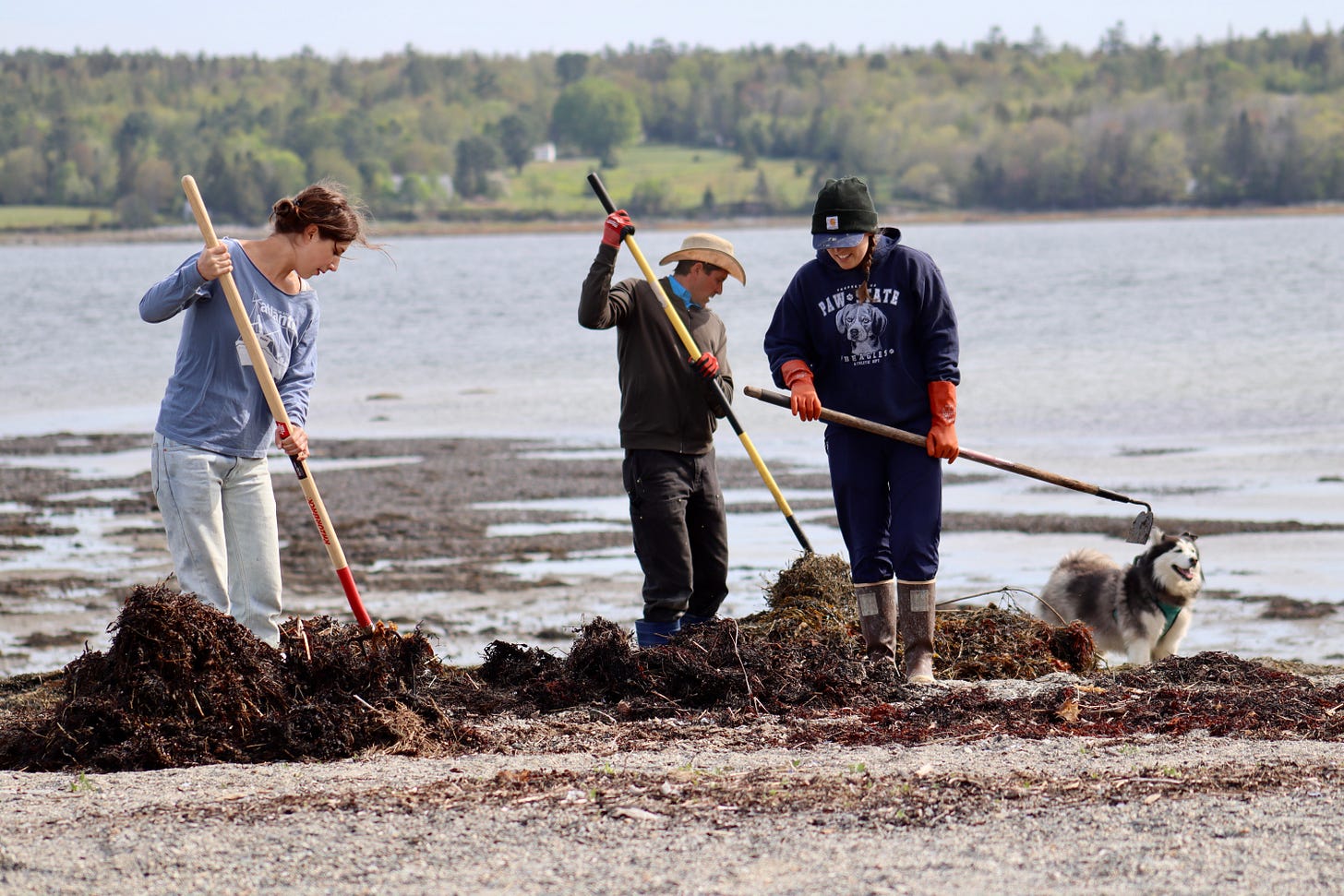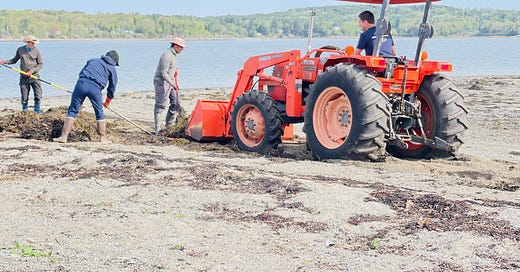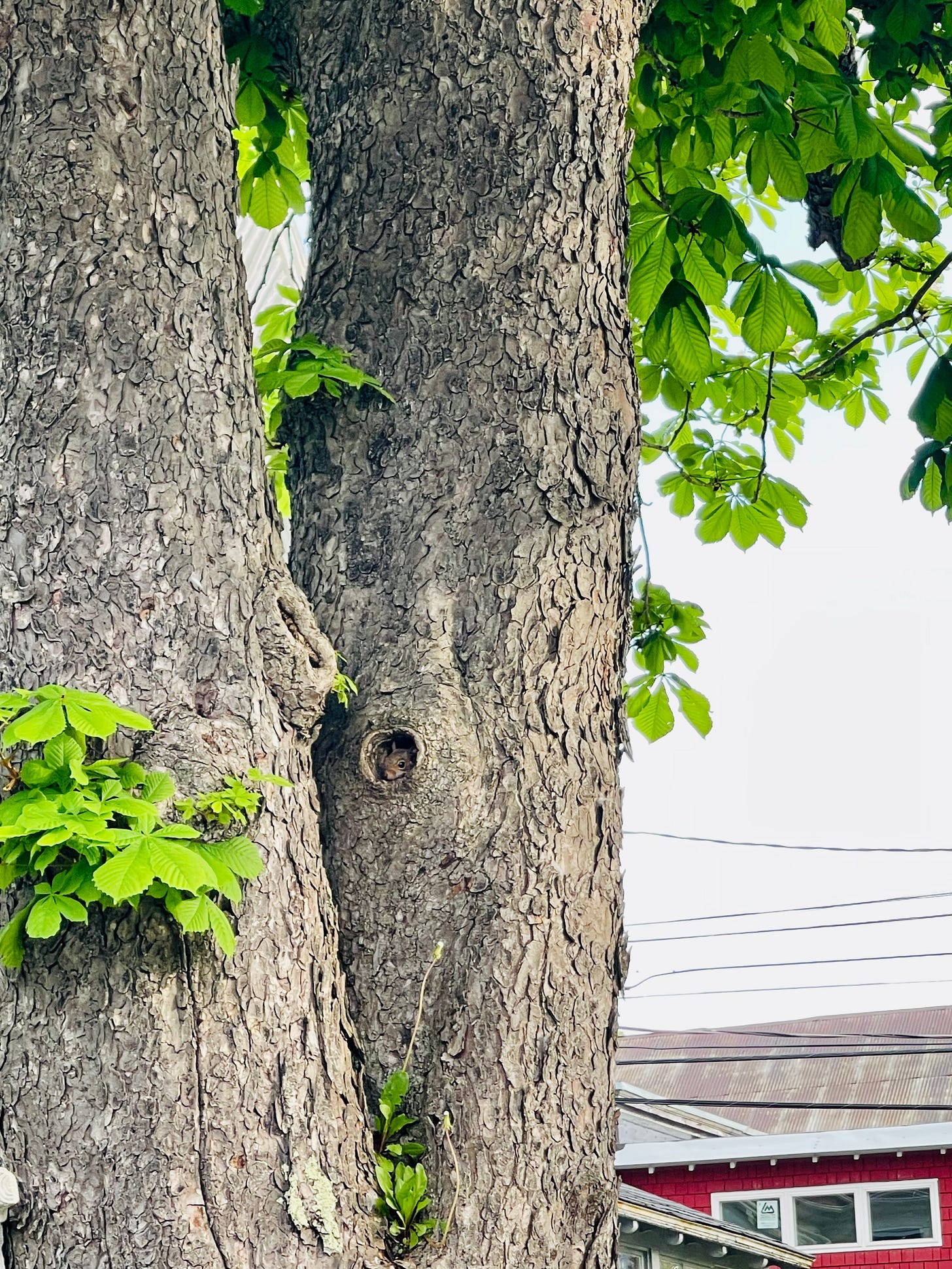The Time I Did Nothing for 4.5 Months—and What It Taught Me About Myself & Ambition
Be Brave Friday
When I was pregnant with Em, I was on bedrest because she wanted to come out way too early. We were poor. My husband was still in college though I had just graduated. And I was stuck on a couch in an apartment in Lewiston, Maine all day long, all night long.
I was only allowed to get up to go to the bathroom and to take showers that were mandated to last less than five minutes.
It was a hard 4.5 months.
It was a boring 4.5 months.
It was a super sedentary 4.5 months.
Those 4.5 months? They were completely worth it.
When I was in labor, I did laps and laps and laps around the maternity ward because I was so excited to meet Em and to just move. My mom zoomed up from New Hampshire, possibly breaking speeding laws, and made it in time to join me in my final laps on that shiny floor, her arm around my waist, crying with joy.
“You can stop,” a nurse told me after my millionth round. “You might want to save up your energy.”
“She’s been saving up her energy for months,” my mom told her.
I had.
It was worth it despite the staying put.
I remember being on the couch and staring out the window at the oak tree branches and twigs and crisscrossed each other, witnessing them go from barren to budding to fully leafed, watching the green shades deepen and shift as the sun moved across the world each day.
Sometimes, I feel like there is no easy way to move forward or that sometimes all my motion is going in circles like in that maternity ward, but the thing is that eventually something happens.
We’re allowed off the couch. A baby is born. A goal is achieved. A puppy bounds through a living room with a chair cushion in his mouth—half chewed, of course.
Things happen.
And we sometimes have to conserve our energy to be able to meet those things.
And we sometimes have to stay in motion because we’re so afraid of stopping because we know what it’s like to be stuck on a couch for months. Maybe we’ve been moored too long and long to be free? Or just want a romp in the backyard?
Here’s the thing: I wanted to start this post with a cool anecdote. I wanted to write “antidote” there, but I resisted.
However, it would work because I’m looking for an antidote for the way I’m feeling about things right this second.
I’m floundering a bit, really. I’ve floundered a bit this past week.
“You’re an ambitious person,” someone said to me on Monday. “You’ve made a newspaper. You’ve never advertised it. Look at the people who read it.”
“Oh. Yeah. But . . . I think if I was ambitious I would have advertised it,” I said. “I’m just too poor and too cheap.”
“You’re ambitious,” they said with one of those super-knowing chuckles. “You just don’t want to admit it.”
“Maybe?” I said because I wasn’t sure what else to actually say, but the truth is that I definitely don’t think of myself as ambitious.
Do you think of yourself that way?
When I think of ambitious I think of hedge funds and Tom Cruise movies, of people with lofty goals, people who run for governor or president, people who want to be a federal judge or a Beyonce or a Tom Brady.
I don’t think of me.
There was a post on a Medium blog yesterday where the writer, Anna Dorn, spent a few paragraphs talking about how she’s always been ambitious and always been suspicious of that ambition, worried that it might not be “a genuine hunger” or if it’s “just a prettier name for insecurity. Maybe I’m just desperate to avoid feeling ordinary.”
I’m going to be honest here and reiterate that I’m not ambitious at all. I want to do a good job at the things I do. I want to be helpful. I want my family to not lose our house or to starve and that sort of thing, but when it comes to ambition?
Meh.
That’s because I know what it’s like to be stuck, to stare at tree limbs, to stay on the couch, to wait and wait and hope for a good outcome when the only proactive thing you can do to get that outcome is to be still, to do nothing, to wait.
There is nothing ambitious about that. That’s about trying to help someone else survive.


Initially, Dorn makes ambition and ordinariness a polarity. You are ambitious or you are ordinary. I think that’s a false dichotomy. I think it’s possible to be both and neither. I actually think in our culture it’s ordinary to be ambitious.
“Physician Charles Black M.D. makes a thoughtful case for ordinariness. He traces our cultural obsession with greatness to the American promise that anyone can achieve anything, and the shame that follows if you don’t. When we equate success with exceptionality, everything else starts to feel like failure. That mindset makes us allergic to the very things that make life feel good: quiet routines, small pleasures, simple relationships. Ordinary isn’t failure, he argues. It’s freedom,” she writes.
There are a lot of people I know who are lovely and who I adore but who spend a lot of their energy striving for influence, to make others think the way they think. They believe in themselves so much that think their way is THE way.
I’m not like that. This has led to me being satirized as milquetoast. And my love of other people’s acts of goodness has led to me being called schmaltzy.
I will hopefully get someone to write that in my obituary: Carrie Jones was mocked as being milquetoast and schmaltzy.
I think it would be cool.
And there are some really gorgeous humans I know who embrace the quiet routines and small pleasures. There is one woman I know here who sent me a message after she saw a photo I took in town. Why? She wanted to tell me that there was a fox family nearby because I might get to see them. She is one of the most gorgeous people I know, this woman. Another woman I know has been sharing and posting the owls living in a tree in her yard—or at least living there. They are sharing their brilliant, beautiful, quiet moments.
How gorgeous is that, really?
But back to ambitiousness.
Dorn wrote:
“But maybe you can still be ambitious without needing to be great. In Psychology Today, business school professor Jeff DeGraff defends ambition as an internal drive to shape your life in a way that feels meaningful. He draws from Emerson and American pragmatism to argue that ambition, at its best, is a form of self-trust. Not the need to stand out, but the decision to take yourself seriously. It means continuing to move and learn, even when the outcome isn’t guaranteed.
“I agree with DeGraff that ambition can be a way of staying connected to what matters. I like striving. It gives shape to my days. It gives me something to care about. But ambition can also become compulsive, especially when it’s tied to the belief that being impressive is the only way to be loved. That idea often starts early and is hard to shake. In that case, anything short of exceptional feels like failure.
“What would ambition feel like if you didn’t need to prove anything?”
That question? That’s what got me.
What would ambition feel like if you didn’t need to prove anything?
More than that though:
What would life feel like if you didn’t need to prove anything?
All the photos are by me from this week except the one of Em which is from the time our camera was terrible. :)
QUICK NOTE
I send these emails twice a week. If you would also like to receive them, join the other super-cool, super-smart people who love it today.
*My WRITE BETTER NOW posts also come twice a week if you sign up for them, too, which you should.
I also have a really chill, really quiet Substack here where I post once a week about soup, share someone else’s poem, and something else that feels comforting.













And layer in what it means to have ambition, wait— can we rename it drive? I’m talking about the thing beavers and ants and tigers have to continually propel themselves onward—as a human woman.
Did you read All Fours? There’s a great book club question where Miranda July asks: Where do you like to perform?
It’s not “do you like to perform?” Which we could all demure and say, “oh no I don’t ‘perform’” but the assertion in her question is…we all do. I laughed when I read it and thought, “what if I actually allowed myself to be seen?”
BHS is an authentic publication. I appreciate your drive to create. It inspires me.